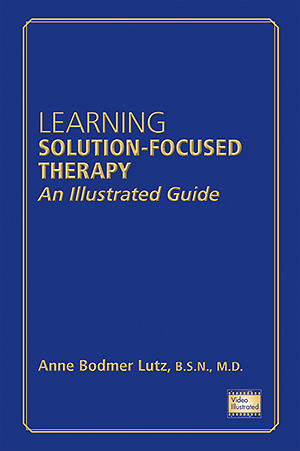Sections
Excerpt
Scaling questions ask patients to rate their priorities, goals, satisfaction, problems, coping strategies, successes, motivation for change, safety, confidence, treatment progress, and hope on a numerical scale from 1–10. These questions have great versatility and can be used to assess the patient’s perception of almost anything(Berg 1994). They are an essential solution-focused tool that helps to measure myriad patient issues, and they can be asked from a multitude of perspectives. They are quick, simple, and easy to ask, making them especially useful for busy clinicians struggling with increasing workloads and briefer appointment times. Scaling questions can be adapted in endless ways. Solution-focused scales are self-anchored rather than normed scales. The patient, not the doctor, defines what a 3 or 7 or 10 means. Scaling questions are used to facilitate treatment and are based on patients’ perceptions(Berg and de Shazer 1993). Patients more readily take ownership of their treatment goals and progress when asked to rate them on a scale. Scaling questions help direct the treatment toward what patients want and what is most important to them, increasing their motivation and confidence to change and helping to facilitate agreement among patient, clinician, and others participating in treatment(Berg and de Shazer 1993). Scaling questions can also help defuse intense emotion in a conversation. Scaling questions are often much less conflict ridden than other types of questions. Numbers are numbers. Scaling questions can dramatically lessen the affective tone of emotionally charged issues.
Access content
To read the fulltext, please use one of the options below to sign in or purchase access.- Personal login
- Institutional Login
- Sign in via OpenAthens
- Register for access
-
Please login/register if you wish to pair your device and check access availability.
Not a subscriber?
PsychiatryOnline subscription options offer access to the DSM-5 library, books, journals, CME, and patient resources. This all-in-one virtual library provides psychiatrists and mental health professionals with key resources for diagnosis, treatment, research, and professional development.
Need more help? PsychiatryOnline Customer Service may be reached by emailing [email protected] or by calling 800-368-5777 (in the U.S.) or 703-907-7322 (outside the U.S.).



